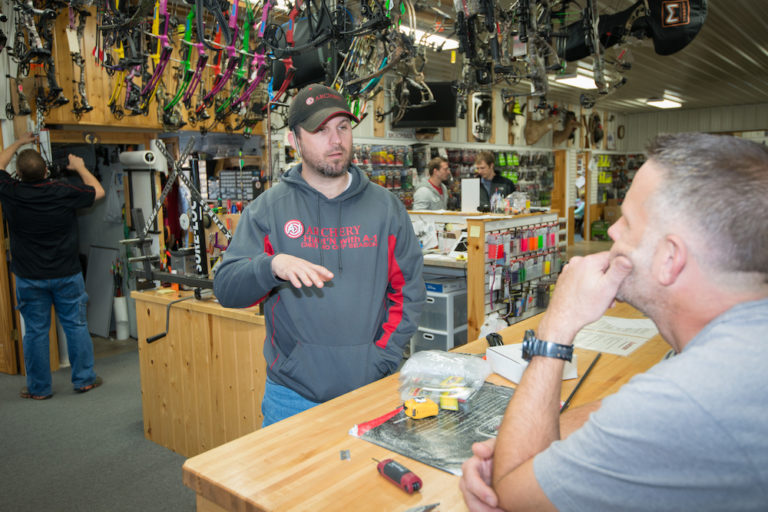Customers have access to a lot of information. Sometimes it feels like information overload. That’s why manufacturers and archery shops serve an important role not only in providing customers with equipment and services, but also in being a reliable source of information for customers to trust.
Customers look to you, as a professional within the archery industry, as an expert. This is a big responsibility. It also means it’s your job to ensure customers receive good information at the shop and online. This can be tricky when well-meaning customers start swapping stories during league night or spread wrong information on your social media platforms.
Here are some tips for addressing misinformation shared by customers.
Monitor Your Social Media
Some businesses have a love-hate relationship with social media platforms. They generate brand loyalty, create conversation and get the word out about events, specials and new products. Customer engagement on social media is a great thing. But it’s important to monitor what people are saying.
Sometimes commenters go rogue. This can include bullying and spreading misinformation. Unfortunately, people might associate these comments with your brand. Always monitor discussions on your page. While it’s important to allow your customers to express their opinions on your page, good and bad, there are times when it’s necessary to step in. This can look like replying to a comment, ending the comment thread or deleting comments. There are cases for all these approaches, but it’s important to understand the proper context for using each of them.
If you see a misleading comment on your page, reply directly to that comment. Politely address the issue. Explain why the information is incorrect, as succinctly as possible. Brevity allows you to convey your message in a way that’s easy for people to read. It also ensures your message is on point. Don’t veer off topic. Cite your source for your expertise. For example, if a commenter is encouraging unethical shot placement, you could direct them to the National Bowhunter Education Foundation’s bowhunter education curriculum, which discusses ethical versus nonethical shot placement. This can help you spread proper information while showcasing that this information is not opinion-based but rooted in knowledge from the experts on the subject matter. If the commenter continues spreading misinformation, you can use social media settings to end the ability to comment on the thread.
It’s a better practice to address misleading comments than to delete them. This shows you’re engaged and willing to have a conversation. Deleting comments is viewed as censorship, and people don’t like that. They appreciate when brands and companies are transparent. Deleting comments could give the impression you’re prone to hiding things like negative reviews or feedback.
Still, there are times when deleting comments is appropriate. If a comment crosses a line like name-calling, includes profanity or is highly political, delete the comment and send a message to the author about why the subject matter was deleted. You can also take it a step further. If the commenter’s behavior is inexcusable, you can block that user from future commenting.
Having a social media plan in place that includes what type of content to post and how to respond to comments can help create a clear vision of how to handle these types of incidents.


